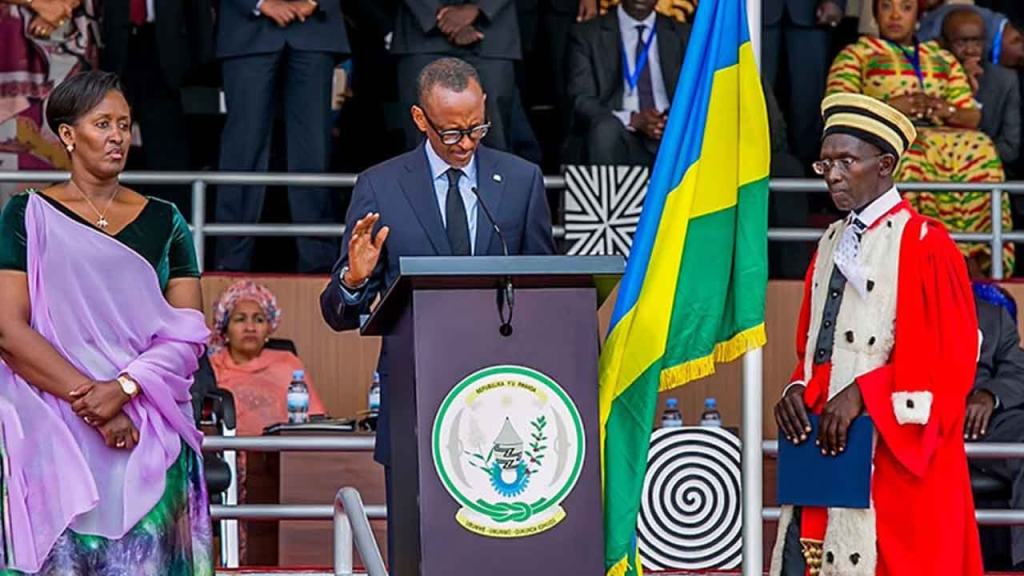Paul Kagame, the long-serving President of Rwanda, was sworn in for a fourth term after securing over 99% of the vote in last month’s election.
The inauguration took place in a packed 45,000-seat stadium in Kigali, where several dozen African heads of state and other dignitaries were in attendance. Kagame took the oath of office before Chief Justice Faustin Ntezilyayo, promising to maintain peace, national sovereignty, and unity.
The outcome of the election was widely expected, as Kagame has ruled Rwanda since the 1994 genocide, first as the de facto leader and then as president. His overwhelming victory, with 99.18% of the vote, has drawn criticism from rights activists, who argue that it highlights the lack of democracy in Rwanda.
Out of eight applicants, only two candidates were permitted to run against him, with the others, including prominent critics, being barred. The Democratic Green Party’s Frank Habineza received just 0.5% of the vote, while independent candidate Philippe Mpayimana garnered 0.32%.

Kagame is credited with rebuilding Rwanda after the genocide, during which Hutu extremists killed around 800,000 people, primarily Tutsis. However, his leadership is also marked by accusations of ruling through fear, with opponents and rights activists claiming he suppresses dissent through intimidation, arbitrary detentions, killings, and enforced disappearances.
Additionally, Kagame’s government has been accused of fuelling instability in the Democratic Republic of Congo (DRC), particularly through alleged support for the M23 rebel group.
During the inauguration, Angola’s President Joao Lourenco, who was present at the ceremony, was scheduled to discuss a ceasefire deal in the DRC with Kagame.

The agreement, brokered by Angola, aimed to address the ongoing conflict between DRC and Rwanda. Despite the ceasefire’s planned implementation, M23 rebels captured a town on the Uganda border, continuing their offensive that began in late 2021.
Kagame remains the only leader most Rwandans have known, with 65% of the population under 30. In 2015, Kagame oversaw constitutional changes that reduced presidential terms but allowed him to potentially remain in power until 2034.
Despite controversies, Paul Kagame’s leadership has consistently garnered strong support in elections, with him winning every presidential race with over 93% of the vote.


